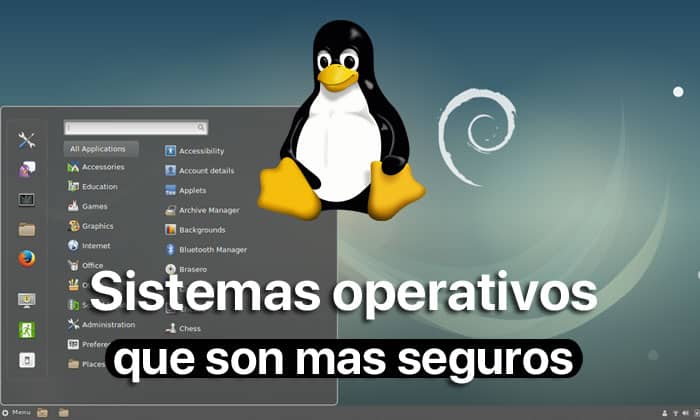
The safety of anything, even operating systems (SO), it tends to be a difficult or even controversial subject to examine. The only truly secure operating systems are those who lack contact with the outside world (for example, the firmware of a DVD player).
As with any other operating system, they will inevitably have some kind of vulnerability or weakness that can be exploited. In fact, any network operating system can be exposed if its settings are carefully abused, with no exceptions.
Anyway, here are the ten safest operating systems on the planet currently. Another important fact is how quickly the vendor releases a patch when a vulnerability is discovered. Recently, the most popular Bash shellshock and Openssl Heartbleed prove it.
List of the most secure operating systems
1. OpenBSD
By default, this is the most secure general-purpose operating system out there. The proof in the pudding? The fact that it has suffered only two remote attack vulnerabilities in the last decade serves as strong evidence of its strict security and strict auditing policy.
Furthermore, OpenBSD lacks a large enough attack surface (careful to run numerous web applications) for hackers to exploit.
2. Linux
Linux is a superior operating system. When customized, it can be configured as extremely secure. Linux has an impressive vulnerability patching policy.
There are different Linux distributions with more privacy-oriented functions, for example QubesOS It is a modified version based on Linux that has the particularity of creating single-use virtual machines to open files or browse the Internet.
3. Mac OS X
This Apple-made operating system handles user permissions better than, say, Windows XP, but it still contains an indecent number of remote vulnerabilities and exploits on its systems. That, along with Apple's slow response to many of its security concerns, has pushed this operating system to the bottom of this list.
4. Windows Server 2008
Say what you want about the security of a Microsoft operating system; At the very least, they know how to improve and have been through the worst security threats the Internet can pose.
This iteration of Windows Server has improved backup and recovery, user account control, web server (IIS) role, and server role security settings.
5. Windows Server 2000
This operating system is so secure that it took almost a decade before Microsoft could find a better one. This operating system for network servers, laptops and corporate workstations continues to receive monthly security patches even after nine years since its launch.
6. Windows 8
Microsoft tried to fix the security problems that have plagued Windows 95, 98, ME, and XP, but they ended up alienating consumers.
The top complaints people made against the polarized operating system - confusing security policies and lack of backward compatibility - were actually security measures that were supposed to protect Vista much more from breaches and hackers. hackers.
7. Windows Server 2003
The good news is that Windows Server 2003 is still a more secure operating system than Windows XP.
The bad news is that in terms of security, it is even worse than its previous prototype, Windows Server 2000. However, it features compelling security enhancements such as the default disabling of vulnerable services and a built-in firewall.
8. Windows XP
It became one of the largest and longest-lasting versions of Microsoft (mainly due to Vista not connecting to the general consumer base that uses Windows). Tragically, it is also one of the least secure operating systems of all time.
Because this operating system runs a large number of network services by default and allows users to access all privileges by default, it is also hacked and violated overnight. daily by default as well.
9. HP-UX 11i
Although not one of the most commercially successful operating systems on the market today, this Unix-based Hewlett-Packard operating system has been included in this list due to its superior security policies over several more popular operating systems (namely Mac OS X, Solaris, and Linux).
10. Solaris
This variant of Sun Microsystems Unix-OS is lower in the security hierarchy in this article because it is not inherently security-focused.
Also due to certain business-related circumstances, most of the Solaris source code has already been released through the OpenSolaris project.
Final words
If your privacy and security is above all, we recommend that you start using an operating system other than Windows, since it currently sends and collects thousands of user data in addition to being an easy target for attackers.
Use a secure operating system and service anonymous email such as ProtonMail, they will improve your privacy and security significantly.